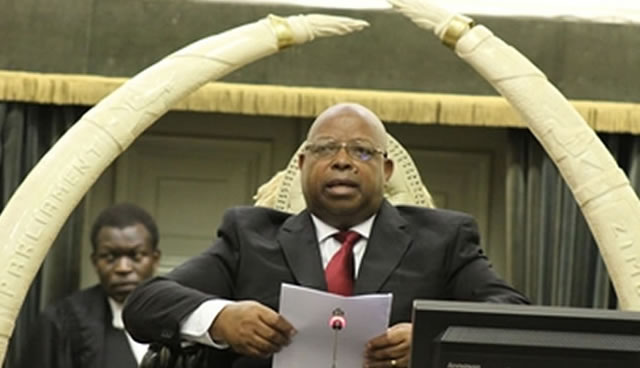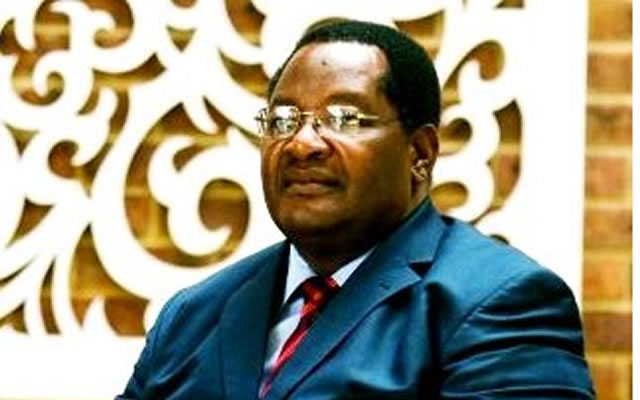No to abuse of Parly privileges: Speaker

Farirai Machivenyika Senior Reporter
National Assembly Speaker, Cde Jacob Mudenda yesterday warned parliamentarians they risk prosecution for contempt if they make unsubstantiated and malicious claims against colleagues or members of the public.The Speaker, made the ruling yesterday and warned parliamentarians against abusing their parliamentary privileges by making statements that unjustly injured the reputations of colleagues in parliament or members of the public.
“The chair hereby rules that with immediate effect, no member shall be allowed to make unsubstantiated allegations against other members and officers of parliament or members of the public except by way of a substantive and clearly formulated motion. The chair shall demand objective and verifiable evidence in support of such a motion.
“Any violation of this order will be met with appropriate charges of contempt of parliament against the member of parliament suspected of abusing parliamentary privileges, particularly through uttering statements that are false, malicious and likely to unjustly injure other members of parliament as well as members of the public,” Cde Mudenda said.
He also said MPs were not allowed to attack the integrity of parliament’s administration in the House and advised them to channel any grievances through laid down procedures.
The ruling by the Speaker yesterday followed a number of allegations made during the on-going debate on corporate governance in the country moved by Kambuzuma representative Mr Willas Madzimure (MDC-T).
In his debate, Mbizo representative Mr Settlement Chikwinya (MDC-T) alleged that Zimbabwe Revenue Authority Commissioner General, Mr Gershem Pasi, earned US$310 000 monthly and also that ZBC bought former Information and Publicity Minister Webster Shamu a top of the range vehicle.
He also alleged that Clerk of Parliament was also earning a high salary.
Cde Mudenda said while the Privileges, Immunities and Powers of Parliament Act guaranteed the privileges of parliamentarians during debates including freedom of speech, it was also subject to the provisions of the constitution as the supreme law of the country.
“Section 61(5) of the Constitution of Zimbabwe provides that freedom of expression and freedom of the media excludes, incitement to violence, advocacy and hatred or hate speech, malicious injury to a person’s reputation or dignity or malicious or unwarranted breach of a person’s right to privacy,” he said.
He added that even Standing Order 62 (E) of the National Assembly’s Standing Orders also warned members against abusing the rules or misusing the forms of the House.
“The schedule (Section 21) of the Privileges, Immunities and Powers of Parliament Act (Chapter2:08) that deals with offences, which constitutes contempt, states that a member may be held to be in contempt if he or she presents to parliament or a committee any false, untrue, fabricated or falsified document or thing with intent to deceive parliament or the committee.
“Put differently, it is contempt of parliament for any member to make an oral or written submission, which is untrue or fabricated as that has the propensity to undermine the integrity and credibility of this House,” he said.
Cde Mudenda also cited a similar ruling made in South Africa’s National Assembly on June 12, 2012 that barred members from undermining the integrity of others without substantiation.









Comments